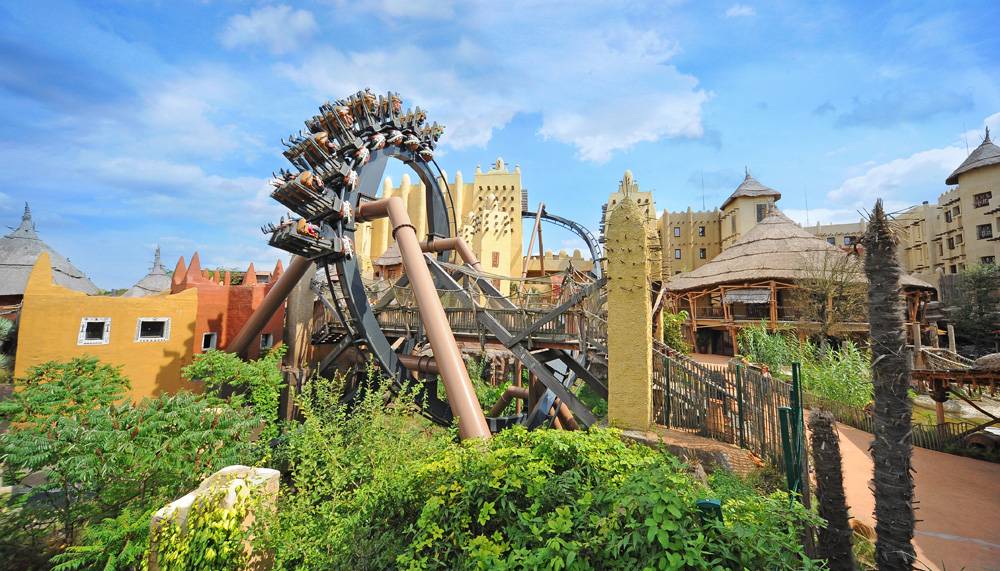Second Covid lockdown leads to closings Reopening comes too late for some restaurateurs in Bonn
Bonn · According to internal surveys taken by the German Hotel and Restaurant Association North Rhine, just under a third of restaurants and cafés in the region will not survive the pandemic. In Bonn, for example, the café Galestro will shut down. Whether Café Sued will survive remains to be seen.
Restaurants and cafés in Bonn were forced to remain closed for almost seven months, but since Saturday they have been allowed to reopen their outdoor areas. For some, however, the reopening comes too late, and for others it is of no use. According to the German Hotel and Restaurant Association (Dehoga), about 30 percent of restaurants, cafés or similar will fall victim to the pandemic and extended lockdown in Bonn and the region.
"The prognosis is based on our associations' ongoing inquiries of the businesses combined with experience gained from many years of operation," explains Mathias Johnen, the deputy managing director of Dehoga Nordrhein. Reasons for the closures are "liquidity bottlenecks, lack of or delayed state aid or lack of hope for a reopening that makes business sense," Johnen continues. In some cases, he said, the owner is anticipating retirement, since the so-called "baby boomer generation will soon reach retirement age." All this makes a reopening nearly impossible for many restaurateurs. Finally, even the aid only provides partial compensation. According to Johnen, it is only "reimbursement, not compensation. There is a lack of basic entrepreneurial security." He believes that employees of the businesses that are closing for good will reorient themselves and the industry will lose some of them; and many owners will "go into private bankruptcy.”
Johnen blames politics: Since the beginning of the pandemic, there has been a lack of clear direction and “not enough listening to people who are actually working in the industry.” Although reopening businesses could now reduce the damages, it is not possible to make up for the lost revenue, Johnen emphasizes.
Bonn espresso bar closes after 13 years
As a result, there are some cafés that are now reopening but will close permanently in the long run. In Bonn, this includes the Italian espresso bar Galestro. After 13 years, owner Wulf Schlichte plans to shut it down. He said he plans to close it permanently in about three months and it is "mainly due to the pandemic." During the lockdown, he could only sell his offerings on a “to-go" basis, which brought very few customers. With both lockdowns, there were eight months where “no normal work was possible,” he said.
As early as November, he was plagued by existential fears, even though he owns two other businesses in Cologne and Koblenz. "I thought even then that I wouldn't be able to survive," the 56-year-old recalls. Now there is another problem: A new bakery is opening next to his espresso bar in Bonn, which is why he has to give up half of his terrace space. "In effect, that means I no longer have a right to exist," Schlichte laments. However, the new neighbor is only "the last straw that broke the camel's back." The main reason was the lockdown. He has already had to lay off his temporary staff.
"False promises" made by politicians
Although he did not want to "blame everything on the politicians," he said that Federal Finance Minister Olaf Scholz and Economics Minister Peter Altmaier had "repeatedly made false promises. Some of the aid was a sham," for example, the government had said it would reimburse 75 percent of all sales, but it was only in house sales that qualified for that, and nothing was received for anything sold or taken off premises. "So you were just barely kept alive, the whole pandemic has been a real struggle." In that regard, he also doesn't understand why they weren't allowed to open the outdoor areas earlier if the exposure is so low there. "I often get the feeling that the people who are governing can't put themselves in our shoes because they have the privilege of being paid by the government," Schlichte notes.
Café Sued was about to go out of business
The proprietor of Galestro is by no means the only restaurateur whose business is existentially threatened by the pandemic. Mehmet Güngör is the owner of Café Orange and did not know for a long time whether he would be able to reopen. However, with the opening of the outdoor areas now possible, "I believe that I have overcome the worst and can continue to operate the business. Provided that the next lockdown does not follow soon," says Güngör.
Daniel Albrecht is the owner of Café Sued and has also thought about closing the café. "We set ourselves a deadline of June, then we would have closed the café after 15 years," he explains. But now he is allowed to reopen just in time, after some mini-jobbers already had to be laid off. "We'll continue over the summer now, but if we do have to close again, we'll end it here, that's already been agreed with the landlord," says Albrecht. So if the gastronomy businesses are spared another lockdown, perhaps a few more could stay afloat after all.
Restaurant in Kessenich " brightened up" the neighborhood
GA-reader Susanne told us about the Bandoneón in Kessenich, the restaurant “brightened up" the neighborhood during the lockdown. In winter there was cozy lighting on the house facade, candles were lit, a Christmas tree was decorated. Now, for spring, there are plantings that add needed splashes of color for the sunny evenings," she says. Owner Choshnav Youssef wanted to make it clear "that we are not dead, we are still here.” Although he had been "literally working for free" for a long time with his interim delivery service, he no longer has any major financial problems.
(Orig. text: Marco Rauch / Translation: Carol Kloeppel)




